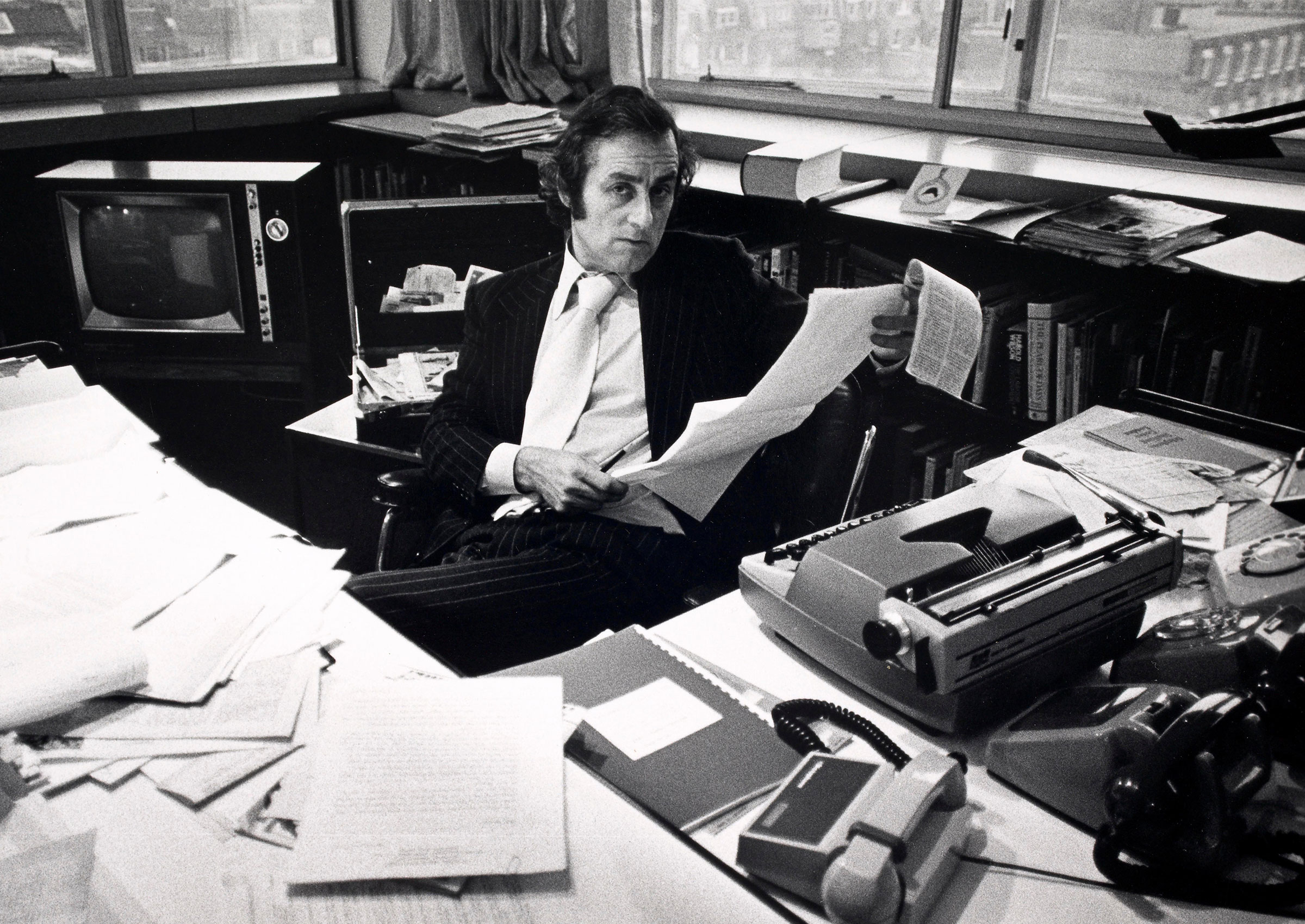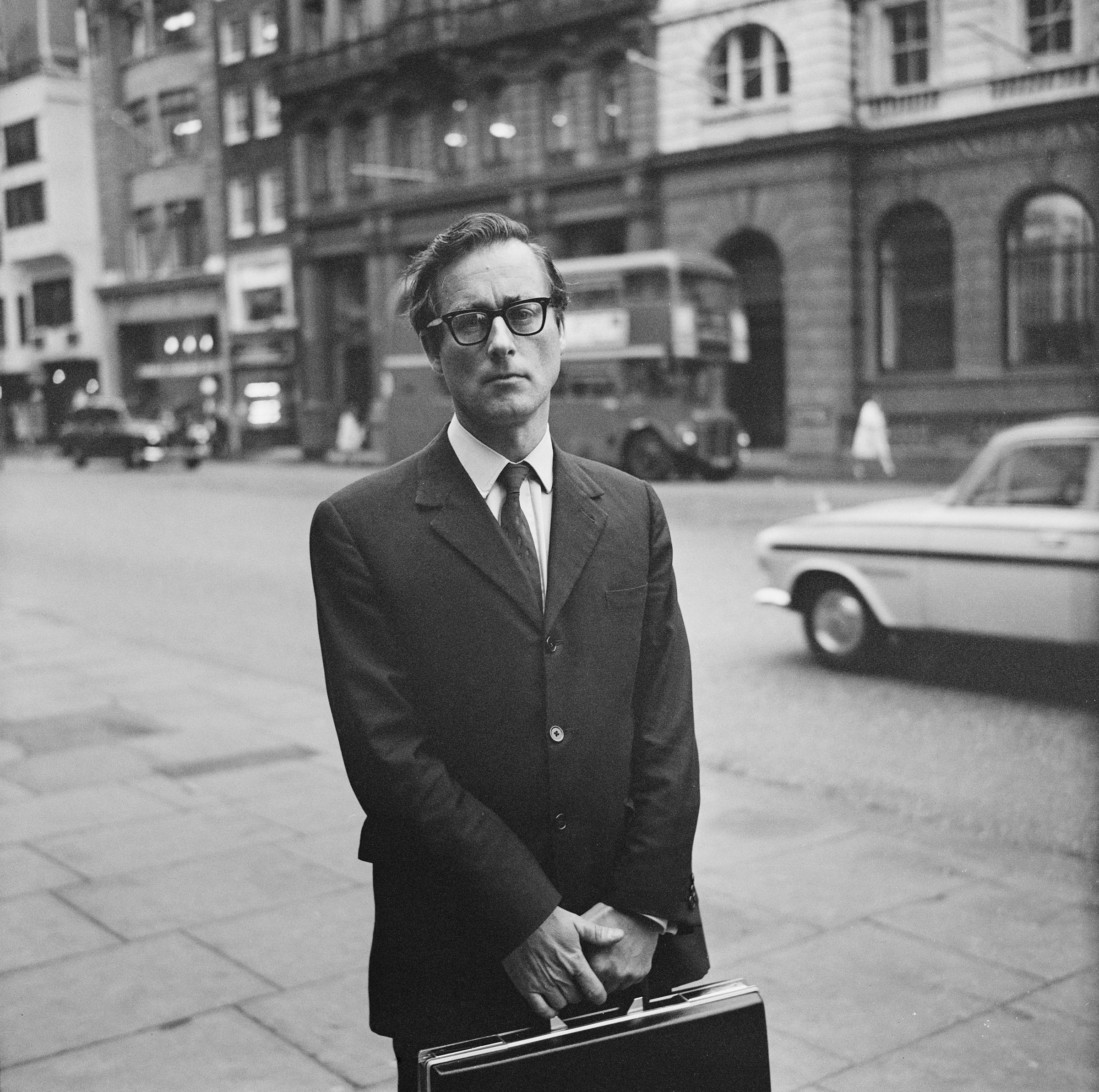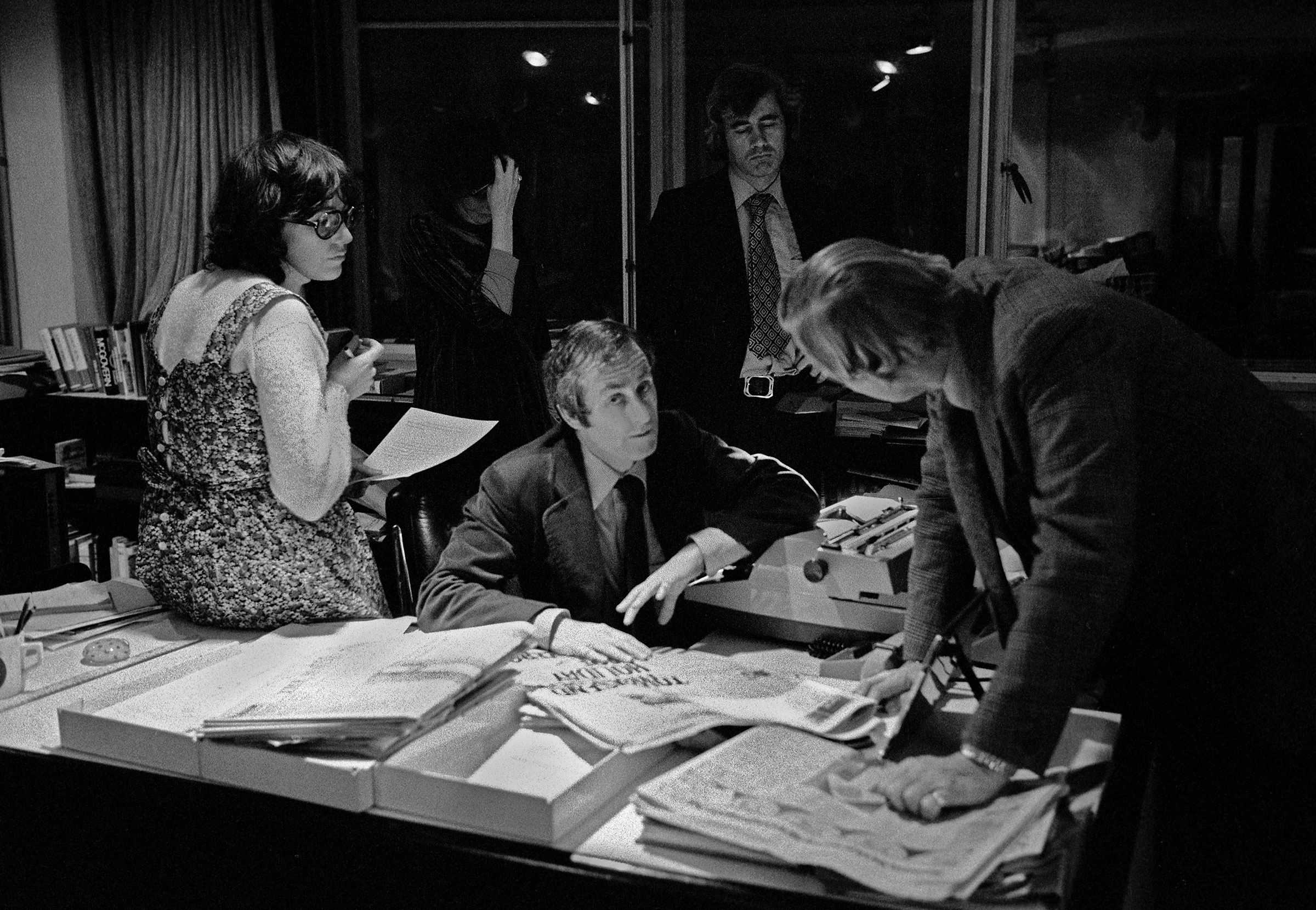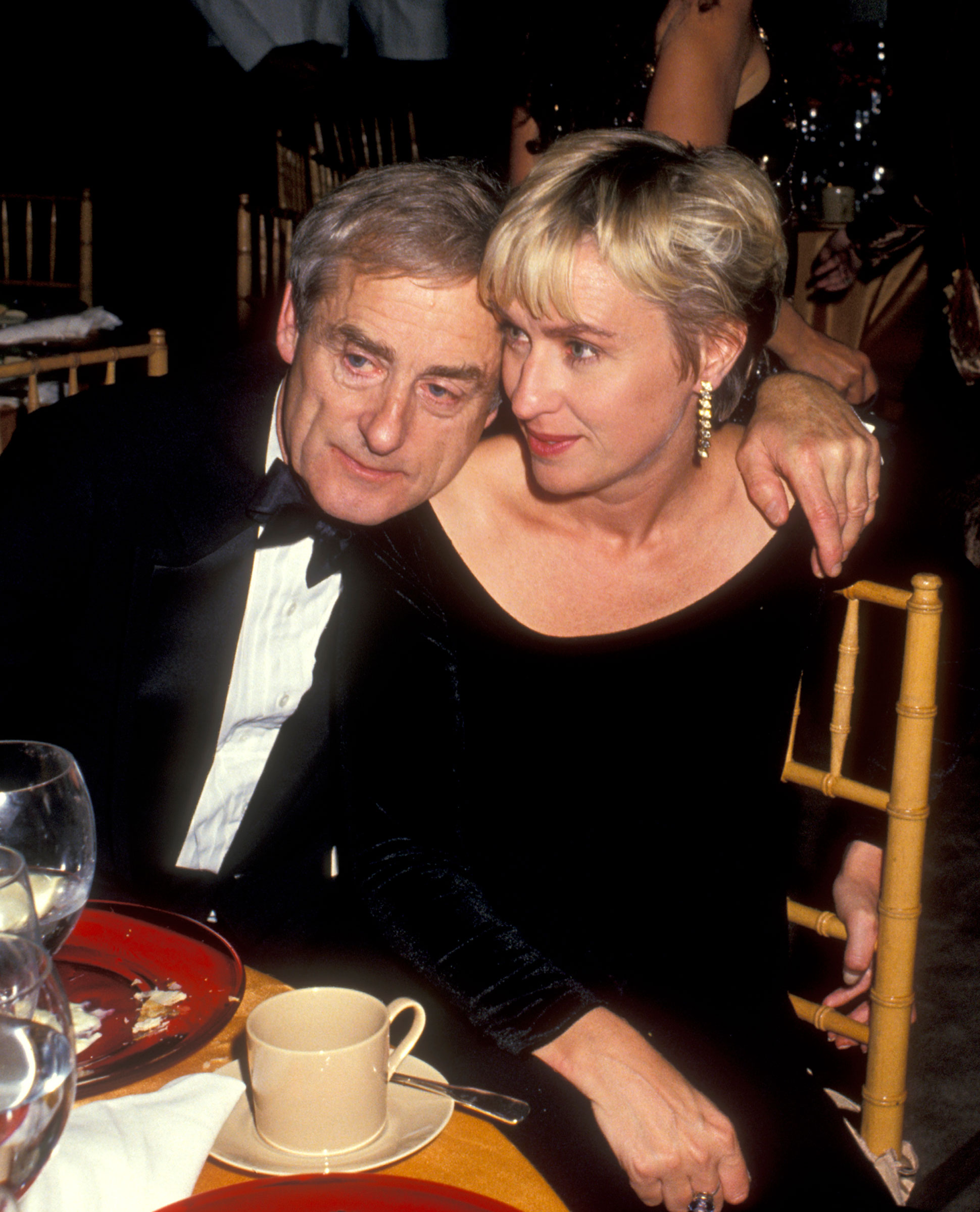
The long life of Sir Harold Evans—Harry to those of us lucky enough to be among his friends—was an epic of decency, courage and moral determination. Inexhaustible until the years finally caught up with him, he has left us one last precious gift. At a time when the press is fighting back defensively against the caricatures of populist ranting—that print and news media are just the echo chamber of the liberal elite—Evans’s own career is a supreme reminder of the indispensability of fearless journalism to a democracy grounded in truth. Its enemies like to brush aside the broadsheet press as so much impotent bloviation. But Evans showed time and again that the hard work of uncompromising investigative reporting could defeat cowardly cover-ups, corruption and conspiracies of lies. He wrote and he edited with a fistful of facts.
The fortitude and integrity that marked everything he did was hard-earned. His family was working-class industrial Lancashire. His father was a railway worker who slogged his way from cleaner to Dark-Ink Train Driver: the aristocracy of the line. His mother turned the front of her house into a grocery store. Harry breathed in the polluted “smog” every day and, at three years old, wasn’t expected to survive a bout of pneumonia. On vacation at the north Wales seaside town of Rhyl, stretched out despondently on the sand, survivors of Dunkirk, now in civvies, spoke bitterly to his father of their useless weapons and the whole demoralising fiasco of their evacuation from beaches strafed at will by the Luftwaffe. Back at the bed and breakfast guest house, the headline of a tabloid nonetheless shouted “BLOODY MARVELLOUS” implying those same soldiers couldn’t wait to get back to war. Right away young Evans understood the betrayal of empty cheerleading. The editor of the postwar mass circulation Daily Express prescribed that paper’s mission as making “everyone feel it’s a sunny day.” Evans knew better; that the truth could hurt which was another reason why it had to be told.

Evans had the respect of those who worked for him because he came up through the ranks in what was still the hot-metal age of print. At 16 he left school to join the local Ashburton-under-Lyne Reporter where he learned the trade as a pound-a week cub reporter, weddings, funerals and 30-word film reviews. An insatiable reader, he kept a copy of Thucydides’s Peloponnesian Wars with him for its insights about war, power and freedom which it shed on his own time as well as antiquity. When he did his military service with the Royal Air Force he was known as “educated Evans” and made good on that with a degree from Durham University in social studies—the only programme which didn’t demand Latin for admission. At the Manchester Evening News he worked as sub-editor, getting the feel for composition, the all-important relationship of image to text, headline to story—and that educated instinct remained one of his greatest hands-on strengths.
The investigative crusading for which he rightly became famous during his years at the The Sunday Times started long before when he became editor of the Northern Echo, based in Darlington, one of the industrial towns of north-east England that was already losing its shipyards and heavy industry. As always Evans identified with ordinary people trudging their way up sooty streets and getting a little comfort in the pubs because this was the kind of world he had come from himself. So it fell to him to discover that the rank smell fouling the streets was the result of noxious industrial pollutants; that with pap smears then unknown, women were dying needlessly from undetected cervical cancer, and that his newspaper could do something about all that. When he got resistance from men in suits, he pushed harder, dug deeper, produced the facts and lives changed. It was a fierce new approach but Evans felt he was following in the footsteps of one of his predecessors, as editor of the Echo, the great muckraking journalist W.T Stead. This was what good journalism should do.
It was also during his time on The Northern Echo in the early 60s that Evans first became aware of children born limbless as a result of their mothers taking the drug thalidomide (sold as a sleeping pill or tranquillizer) during pregnancy. Shockingly, the Minister of Health at the time, Enoch Powell, refused to open an inquiry, forbade the affected families from giving their case to the press and avoided seeing any of the children in person. The only recourse left—launching a civil suit for negligence—also meant testimony was sealed, and that any further publicity might result in prosecutions for contempt. Undaunted Evans published unforgettable photos of the children. In a moving passage in his beautifully written autobiography My Paper Chase he describes how the process of airing the tragedy made him engage whole-heartedly with the children and their families rather than simply seeing them as copy.
As editor of what his predecessor Denis Hamilton called the “Rolls Royce” of paper, the Sunday Times he took up the cause of the thalidomide children again in the late 60s and early 1970s, refusing to be cowed by threats of contempt of court. The paper committed to publishing a photo of every one of the affected children week after week and exposed the lies offered by Distillers and the original German manufacturers who argued that at the time, there had been no knowledge that a drug could penetrate the placental shield to the fetus. The unrelenting campaign bore deep into the credibility and stock value of the company and in the end a trust fund ten times the amount originally offered, was established for the families. The European Court of Human Rights upheld Evans’s contention that in cases of such public interest the letter of the law was not necessarily the same as justice.

Evans could do all this because the owner of The Sunday Times, the Canadian press baron Roy Thomson, though himself holding views well to the right of Evans, was a stickler for editorial independence, not just in the content of the news but the management of the paper. So Evans made the “Insight” group of reporters into true team investigative journalism: four reporters and a researcher, all working on the different facets of a story, pooling and shaping it for hard factual detail and eloquent exposition. A part time researcher for the colour magazine, I myself got to sit at the feet of some of the great Insighters: Bruce Page, Ron Hall and Philip Knightley, among others. But every time I sat at a desk in the building in Grays Inn Road as a very junior “squatter” there was the sense that the mission of the paper, the backbone of its integrity and the sharpness of its pages owed everything to Harry Evans’s resolute editorial leadership. It was an inspiring place to be and for a precious time, journalism could be forcefully unapologetic about the dignity of its vocation.
Evans was editor of The Sunday Times for 14 years, but editor of the daily Times for little over a year. The difference was the new owner: Rupert Murdoch. Evans had failed in organising a management-led buyout and had then accepted Murdoch’s ownership on condition of promises made to respect editorial independence. He later recalled that all five of the promises made, not just to him but to Parliament, had been broken within a year. It took little time for Harry to realise that Murdoch was determined to turn The Times into a voice for Margaret Thatcher’s brand of hardline conservatism. The unsustainable relationship ended with Evans’s firing.
What followed was a living retort to Scott Fitzgerald’s claim in The Great Gatsby that “there are no second acts in American lives.” Harry never stopped being gratefully amazed that America had given him just that second life to match a great love and a second marriage with Tina Brown. His passion for America—its optimism, ingenuity and energy—had begun much earlier in 1956 when a Harkness Fellowship brought him to the University of Chicago. Being Harry he used the opportunity to dive deep into the country—industrial Gary Indiana, the Navajo in New Mexico ravaged by illness and poverty, Paris, Illinois “where men in earmuffs stamped their feet on the cold ground.” He also got an early taste of what it was like to work for a self-deified newspaper tycoon, “Colonel ” Robert McCormick of the Chicago Tribune.

So when jobs came their way—editing U.S. News and World Report, Conde Nast Traveller for Harry, Vanity Fair and The New Yorker for Tina—neither of them were interested in imposing British journalism on American publications. They plugged themselves into the electricity of American writing and publishing; shared respective instincts and skills about composition, photo-design, and married them to the job in hand. Their home in Sutton Place became somewhere not for mwah-mwah greetings and canapé nibbling but instead a little hothouse of ideas. When Harry became President and editor-in-chief of Random House he would preside over the introduction of a newly published book and its author, get cracking on a probing conversation and stir up provoking questions from the crowd. His own fine books on The American Century and on its inventive genius, They Made America, testified to an unquenchable belief in the resilience of American culture and politics; its deep well of self- renewal.
Which doesn’t mean that he was complacent in the face of the brutal injustices and inequalities besetting contemporary American life. Much of what he saw in his last years distressed and enraged the old lion. Public cowardice in the face of the perversion of the truth; indifference to evidence; the corruption of integrity, would still draw from him moments of belligerent contempt and fury. Harry Evans did not want all he had worked for, in and out of the papers, to be set at naught. But in the end I think he knew, because so many of us are his grateful disciples, that none of his great battles will have been fought in vain.
More Must-Reads from TIME
- Cybersecurity Experts Are Sounding the Alarm on DOGE
- Meet the 2025 Women of the Year
- The Harsh Truth About Disability Inclusion
- Why Do More Young Adults Have Cancer?
- Colman Domingo Leads With Radical Love
- How to Get Better at Doing Things Alone
- Michelle Zauner Stares Down the Darkness
Contact us at letters@time.com